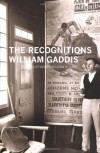Blogged Out Ma Nut
Emoticoning but with letters.
Voltaire's Adventures Before Candide: And Other Improbable Tales
 I was invited to review this book since I had read ‘the sequel’, and I must say it shed some frightening light on [b:Candide|372635|Candide (Unabridged)|Voltaire|https://d202m5krfqbpi5.cloudfront.net/books/1174249116s/372635.jpg|2833018]. How dare [a:Voltaire|5754446|Voltaire|https://d202m5krfqbpi5.cloudfront.net/authors/1347073096p2/5754446.jpg] offer us something so calm when this true testament to his life was so much more exciting?!?!?! I mean, Candide visited like… one planet, as I recall, and it was the one he was already on. Voltaire on the other hand, visited somewhere within the range of 2 to a f**kton. For example. An he did a whole load of other stuff too, like he went on an adventure to find [b:Jane Eyre|10210|Jane Eyre|Charlotte Brontë|https://d202m5krfqbpi5.cloudfront.net/books/1327867269s/10210.jpg|2977639] (the one who wrote Wuthering & Prejudice) an other stuff what I won’t even tell you about it because you’ll have to read :D
I was invited to review this book since I had read ‘the sequel’, and I must say it shed some frightening light on [b:Candide|372635|Candide (Unabridged)|Voltaire|https://d202m5krfqbpi5.cloudfront.net/books/1174249116s/372635.jpg|2833018]. How dare [a:Voltaire|5754446|Voltaire|https://d202m5krfqbpi5.cloudfront.net/authors/1347073096p2/5754446.jpg] offer us something so calm when this true testament to his life was so much more exciting?!?!?! I mean, Candide visited like… one planet, as I recall, and it was the one he was already on. Voltaire on the other hand, visited somewhere within the range of 2 to a f**kton. For example. An he did a whole load of other stuff too, like he went on an adventure to find [b:Jane Eyre|10210|Jane Eyre|Charlotte Brontë|https://d202m5krfqbpi5.cloudfront.net/books/1327867269s/10210.jpg|2977639] (the one who wrote Wuthering & Prejudice) an other stuff what I won’t even tell you about it because you’ll have to read :DGreat daft fun.
If somebody put Zombie [a:Kurt Vonnegut|2778055|Kurt Vonnegut|https://d202m5krfqbpi5.cloudfront.net/authors/1357661500p2/2778055.jpg]’s hands in a blender, he’d probably have written something like this, and personally, I can think of no higher praise.
[SIC]
![[SIC] - Davis Schneiderman](http://booklikes.com/photo/max/200/300/upload/books/48/21/eb01ff353ead21df2099ed62dc1ff13b.jpg) So these are the notes that I made while I was reading this book- I was going to craft it into a review, but then realised the fractured nature of it might actually be fun to piece together yourself a la [SIC]- please tell me if I was wrong!
So these are the notes that I made while I was reading this book- I was going to craft it into a review, but then realised the fractured nature of it might actually be fun to piece together yourself a la [SIC]- please tell me if I was wrong!1. I didn’t expect to have so much to say about this experiment, but I sure do ☺
2. funny references in initial 99 notes
3. this guy is off his nut
4. This is one of the classiest toilet books available!
5. Favourite reference was Zero Wing from Sega Mega Drive
6. Plagiarises the definition of plagiarism!
7. [a:Alasdair Gray|14870|Alasdair Gray|https://d202m5krfqbpi5.cloudfront.net/authors/1306622519p2/14870.jpg] did a funny thing at the end of [b:Lanark|161037|Lanark|Alasdair Gray|https://d202m5krfqbpi5.cloudfront.net/books/1327948704s/161037.jpg|958496] where all of his references were exposed, and he categorised them into three groups of plagiarism (find out what these were - WIki). So perhaps [SIC] is the natural extension of this. Perhaps this has a message about not constantly beating yourself up about re-invention, because it could not be said that [SIC] is not re-invention, but perhaps re-invention for re-invention’s sake is anomalous.
8. I also dislike that Martin Amis quote about Nabokov (WTF does it mean?!)
9. Says you don’t necessarily need to read it- true, a lot in Latin, some parts I didn’t read because they were appropriated from sources I had yet to read and didn’t want to spoil. In any case it didn’t take long.
10. images are funny- starts to become apparent that Schneiderman is the ghost re-visiting important literary locations through time and space, in images as in writing. At least that’s what it first looked like, but then he just seemed to start scaring children.
11. How does a man make a mark on literary history? When does a reference cross over into plagiarism? What is a fun nod to a literary giant and what is a tiresome rehash? What has literary merit and what doesn’t?
12. The fact that I was not asking myself these questions, but that I am now, is testament enough to the value of this bizarre experiment. And sometimes the writers in his appropriations reference other writers… then my head started to hurt.
13. And asking someone to buy this book is part of the fun- it’s part of how its message extents beyond the pages to its transaction and takes dada-ism and postmodernism to a new level. So to honour what I think this book represents, and in drawing attention to the reader, I ask you: should you buy it?
14. Well, when Schneiderman eventually does put hypothetical pen to non-existent paper, I’ll read it. As for this experiment in copy-paste throughout time, here’s my own plagiarism for you: “You had my curiosity, but now you have my attention”
15.
16. obviously clever
17. interesting to see the multitude of sources of great literature that you can now claim as your own, that statement I at least understood.
Hm, on second thought I don’t want these notes to speak entirely for themselves. I had a lot of fun browsing these clippings, and they were not without purpose. Schneiderman is not only one to watch, he is one of the literary greats of our time! For where would we be today without The Canterbury Tales? The Confidence Man? Hamlet, the greatest play ever written? He’s also the abhorrent author of Mein Kampf, but then he actually wrote the number π, then mathematicians started using it, he gave us Ulysses, the Jabberwocky, and how can you say someone has plagiarised when they themselves presented you with the definition of the word plagiarism as you understand it today? Anyone would be hard put not to be overwhelmed by the literary offerings that Davis Schneiderman has given us throughout time. As D. Schneiderman once said, ‘I take my hat off to you”!
 It’s clear very early on what a huge influence this book had on [a:Tarkovsky|16014|Andrei Tarkovsky|https://d202m5krfqbpi5.cloudfront.net/authors/1217349397p2/16014.jpg]. I couldn’t get that quote from Solaris out my head: “We don’t need other worlds, we need mirrors.” In some of the dialogue, I kept expecting it to be the next sentence. Here we see a world of stalkers and scientists alike trying to make sense of the Zone, living their lives around it, investigating, obsessing, profiting, and succumbing to it, but never truly making sense of it.
It’s clear very early on what a huge influence this book had on [a:Tarkovsky|16014|Andrei Tarkovsky|https://d202m5krfqbpi5.cloudfront.net/authors/1217349397p2/16014.jpg]. I couldn’t get that quote from Solaris out my head: “We don’t need other worlds, we need mirrors.” In some of the dialogue, I kept expecting it to be the next sentence. Here we see a world of stalkers and scientists alike trying to make sense of the Zone, living their lives around it, investigating, obsessing, profiting, and succumbing to it, but never truly making sense of it.I suppose one regret is that I can’t read it with Tarkovsky’s eyes. While [a:Stanisław Lem|10991|Stanisław Lem|https://d202m5krfqbpi5.cloudfront.net/authors/1246185166p2/10991.jpg] didn’t like Tarkovsky’s Solaris, it explored arguments and concepts that I never thought were in the original novel. Similarly, how Roadside Picnic becomes Stalker is beyond me, but in this case the development is at least a little clearer. The story skims the surface of the world’s evident depth, and characters speak to each other very plainly about the world they live in, and the reader is always kept somewhat out of this discussion- decades of life are skipped when characters are revisited, and all that has passed in the interstitial years is for us to deduce. For this carefully-tuned permeating mystery and the timelessness of the main message, the book has endured. We don’t need other worlds, we need mirrors, and ours is the only world we have.
Highly recommended for those who enjoy that flavour of deep redemptive tragedy that only something which is very, very Russian can provide.


Original author: Manny
=========================================
In the shower just now, I suddenly had a Eureka moment. The aspect of this current censorship war that's been upsetting us most is the feeling of powerlessless. Goodreads can arbitrarily change the rules on us, and they hardly even bother to respond when we complain. But we are not powerless. There are twenty million of us, and only a few dozen of them. We just need to get a little more organized, and we can easily resist.
So here's one concrete way to do it, based on the legend of Hercules. You will recall that Hercules had a difficult time against the Lernean Hydra; every time he cut off one of its heads, ten more grew back. We can do the same thing if we adopt the following plan:
1. Back up all your reviews, so that you have a copy of everything you have posted.
2. If you think that one of your reviews has been unreasonably deleted by Goodreads, repost it with an image of the Hydra at the top.
3. If you see someone else posting a Hydra review, make a copy of it and post it yourself.
We can improve this basic scheme with a little thought; for example, it would be better to have a place where we keep HTML marked-up source of reviews, so that they can immediately be reposted with the same formatting, and we need a plan for duplicating deleted shelves. But we can sort that out later. Without getting too bogged down in the details, I'm sure you see what will happen. The net result of Goodreads unreasonably deleting a review will be that it immediately comes back in many different places.
People who know their Greek mythology will be aware that Hercules did in fact defeat the Hydra, and Goodreads can use the same method if they dare; they can close down the account of anyone who participates in the scheme. That will work, but I am not sure that anything less drastic will be effective. I think Goodreads will be reluctant to escalate to this level. A large proportion of the most active reviewers are now part of the protest movement, and they would be losing much of the content that makes the site valuable. Even more to the point, the media have already started to get interested (maybe you saw the article in the Washington Post). They would love the story, and it would create a mountain of bad publicity for Goodreads and Amazon.
I'd say the odds are heavily in our favor. Why don't we try it? I promise now to respond to any Hydra calls
 1
1
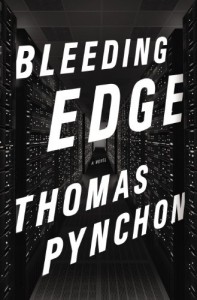 It was ok ☺
It was ok ☺I won’t say much about the plot- if you’ve read Pynchon before, you’ll know why!
While reading this I kept thinking about something [a:Louis Theroux|92848|Louis Theroux|https://d202m5krfqbpi5.cloudfront.net/authors/1273540184p2/92848.jpg] said, which was (I never remember exact quotes) along the lines of: people always say “I don’t read enough”, but nobody ever says “I don’t watch enough TV”, so in that sense TV is a medium that people aren’t afraid of, which he appreciated in terms of his audience. Well, [a:Pynchon|235|Thomas Pynchon|https://d202m5krfqbpi5.cloudfront.net/authors/1344580482p2/235.jpg] has written the kind of Pynchon book that people can’t be afraid of- it’s simple enough, finding the references are good fun, its nowhere near as transgressive as his back catalogue (I found one or perhaps two sexual encounters? One was vague and the other one was absolutely pathetic! I’ll let you find it though, it was pretty funny), so great! If it’s taken him this long to create the kind of retroactive stepping stone that will get more people reading Gravity’s Rainbow, that’s just fine.
And as I’ve said before, when I read Gravity’s Rainbow, there were a number of changes I wanted that would have improved my enjoyment, which were: larger pockets of coherent passages, less characters and less disgust. Then in Against The Day all these changes were made, and it was a wonderful book but comparably the mind-boggling density of it was diminished (still mind-bogglingly denser that so many other books). With Bleeding Edge we see the density diminished further still through these same three changes and more, creating a backwards ramp of difficulty through the Pynchon portfolio- and that’s just grand! (What I’m trying to say is, read everything Pynchon has ever written.) Oh, and the signposts for the potential date of events are much clearer: characters mention films that come with their date of release, videogames that they play had specific release dates (that are not really mentioned, but still burned into the memory of my childhood) but the band of possible time in which events could be taking place is vastly decreased. The 90s-00s references are one of the most fun things about this book, and there’ll definitely be some “Oh yeah, that!” moments as well as amusement that Pynchon is aware of pokemon, Furbies, Quake machinima etc.- I don’t know why he wouldn’t be! Pynchon is the kind of social commentator that I imagine a lot of his references are aware of, quite appropriate for his self-referential postmodern stylings- I mean to say that I bet Arnold Vosloo is touched that he had his own sentence and fictional fan in a Pynchon book! And that’s another thing, there's something about the way this time period is documented that is much more intimate. I find it hard to believe Pynchon deliberately researched all of this and wasn’t forced by his son to play Super Mario or see The Mummy films (nothing wrong with those examples anyways, great fun), but all of this is still tinged with his sense of humour, winking at us about his personal life in his fiction without letting us know anything about the reality.
I think it would be silly to say that the way BE is written isn’t deliberate, or that Pynchon’s “lost it”- maybe there’s something about the time period that is more open, less confused, perhaps the reduced number of characters and the clarity of the plot represents a disconnectedness or a greater transparency following the advent of the internet, in which hundreds people with silly names can’t get up to perverted things then drop off the page. I’d like to believe that ☺ Although from such a master of conspiracy and paranoia, I was dying to hear him say more about 9/11, and I wish he had.
So what the hell are the 3* for?! This book is well better than most, but it’s hard not to be disappointed given what the author is capable of. So all in all, I greatly appreciate the need for this book but I expected more.
Hope you keep writing mate, I’m still a fan4lief!!!!!!!!!
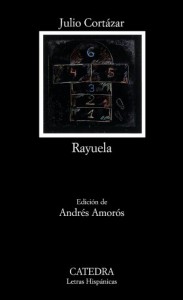 Pfffff thank god for that!
Pfffff thank god for that!The majority of South American literary-ture that I've read (sans Borges, Marquez and the other obviousers) has been about bohemians dicking about and occasionally having sex, and Hopscotch is no different. It claims to be two books, one which is read left to right until the end of chapter 56, and another which is read in a crazy order all the way up to chapter 155. I read 1 1/2 of those books, and every time I deviated from the normal chapter order, all I found was a page-long quote which was somewhat related to the chapter I'd just read, and not often anything more- seemed to me to be one book with some glorified endnotes!
Also felt locked out of lots of the content too, just because I'm not South American. From Andrés Amorós' introduction exclaiming that Hopscotch is 'even studied in Spain, now!' to the occasional footnote with a layman's biography of Samuel Beckett, I had no doubt that this was targeted at its natural South American audience. And I can imagine that if I was from Argentina, vicariously dicking about in Paris would be quite a seductive prospect :D
Wouldn't recommend this, but 3* -let it be remembered that a book read in a second language is valuable even in spite of its content, so if you ever want to take a chance on a new author, genre etc, do it in another language if you have the possibility :-)
And if you are in the mood for some South American dicking about with a pseudopostmodern flair, you can't go wrong with [a: Bolaño|72039|Roberto Bolaño|https://d202m5krfqbpi5.cloudfront.net/authors/1260522528p2/72039.jpg]! :)
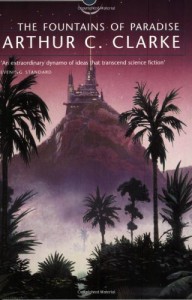 Just finished writing a collection of short stories so my need to write is really low.
Just finished writing a collection of short stories so my need to write is really low.Anyways this novel sucks. But this collection of ideas is extraordinary! Solar mirrors on Mars, moon mining, magnetic rails... awesome. I could plagiarise this book alone and have enough inventions for two or three livelihoods!
Well done.
 1
1
 As with [b:The Prize|392162|The Prize (The Epic Quest For Oil, Money and Power, Part I)|Daniel Yergin|http://d202m5krfqbpi5.cloudfront.net/books/1174402169s/392162.jpg|163531], this is a difficult subject to be enthused about, but I left with what I wanted: a slew of interesting facts to use in my upcoming Masters presentation.
As with [b:The Prize|392162|The Prize (The Epic Quest For Oil, Money and Power, Part I)|Daniel Yergin|http://d202m5krfqbpi5.cloudfront.net/books/1174402169s/392162.jpg|163531], this is a difficult subject to be enthused about, but I left with what I wanted: a slew of interesting facts to use in my upcoming Masters presentation.To be honest, the biggest environmental lesson I learned was that here is a man who is more aware than any of us about global warming and the energy crisis, and yet he still thinks its appropriate to have large print runs of his book and cut down trees everywhere and use energy to create all these objects, so... my brothers and sisters, the time to panic is not just yet! What a relief :-)
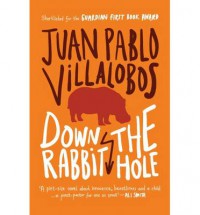 There are a few things I'm struggling to understand about this 'novel', mostly to do with its length. Like... why is it so short, for example?
There are a few things I'm struggling to understand about this 'novel', mostly to do with its length. Like... why is it so short, for example?Achingly tryhard and affectedly random- goddamit Villalobos, anyone would think you'd wrote it for me!
Live and Let Die
 The film is better, so the only reason I can imagine you would read this is if you enjoy vintage racism!
The film is better, so the only reason I can imagine you would read this is if you enjoy vintage racism!
 Look, [a:Sacks|843200|Oliver Sacks|http://d202m5krfqbpi5.cloudfront.net/authors/1222681187p2/843200.jpg] is a great writer with a huge pool of research and interesting anecdotes to impart.
Look, [a:Sacks|843200|Oliver Sacks|http://d202m5krfqbpi5.cloudfront.net/authors/1222681187p2/843200.jpg] is a great writer with a huge pool of research and interesting anecdotes to impart.My problem is that I don't understand what the consequence of these anecdotes is, beyond my own amusement. For that, [b:Musicophilia|1297985|Musicophilia Tales of Music and the Brain|Oliver Sacks|http://d202m5krfqbpi5.cloudfront.net/books/1320494159s/1297985.jpg|2304379] did not feel like a hugely rewarding read.
I'll check out [b:Uncle Tungsten|64664|Uncle Tungsten|Oliver Sacks|http://d202m5krfqbpi5.cloudfront.net/books/1347311078s/64664.jpg|1031823] then that's me done, I'll be [a:Sacks|843200|Oliver Sacks|http://d202m5krfqbpi5.cloudfront.net/authors/1222681187p2/843200.jpg]'s oot ma nut :D
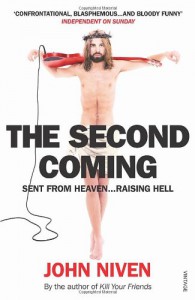 Good, silly but ultimately inconsequential fun :)
Good, silly but ultimately inconsequential fun :)Shame to see Steven Stelfox from the much better [b:Kill Your Friends|2848807|Kill Your Friends|John J. Niven|http://d202m5krfqbpi5.cloudfront.net/books/1332136711s/2848807.jpg|2874926] not making a stronger appearance.
 Clever, intricate, rich in world-detail, but... why is this guy a novelist? This is clearly a videogame or a series of 24 (at least it became one of these). As a book it mostly sucks. Every single time I read prose which just details a series of actions I think 'This person's using the wrong medium for their story.' He shot him he shot him back. If an author has a cast of hundreds that they don't care to detail in the slightest beyond that character's nationality and some 90s wife and kids cliches, well... I get it I do. The level of drama we're dealing with here is conflict between nations, not intra/interpersonal drama, I get it. Again, I think the novel's a pretty bad format for that since it's the only format where we can look inside the character's head, whereas this is mostly exposition-based, how can I put it... Michael Bay wouldn't get nearly as much money if he just asked us to imagine an exploding building.
Clever, intricate, rich in world-detail, but... why is this guy a novelist? This is clearly a videogame or a series of 24 (at least it became one of these). As a book it mostly sucks. Every single time I read prose which just details a series of actions I think 'This person's using the wrong medium for their story.' He shot him he shot him back. If an author has a cast of hundreds that they don't care to detail in the slightest beyond that character's nationality and some 90s wife and kids cliches, well... I get it I do. The level of drama we're dealing with here is conflict between nations, not intra/interpersonal drama, I get it. Again, I think the novel's a pretty bad format for that since it's the only format where we can look inside the character's head, whereas this is mostly exposition-based, how can I put it... Michael Bay wouldn't get nearly as much money if he just asked us to imagine an exploding building.I appreciate the effort and the well-researched speculative terrorism, and perhaps that's where it does use some of the qualities of a novel. Clancy can afford to take time to explain complex biological warfare concepts and intricate hierarchical structures of secret organisations, but I guess there needs to be some hook, some reason to learn these things, and for me that would be investment in the characters, which leads me back to the idea that they weren't detailed enough.
This is not my thing, either because it genuinely shouldn't be a novel, or if it should, I think it's a very limited type and not one I want to read.
 The best Spanish language author I have found so far.
The best Spanish language author I have found so far."The Library of Babel" is the clear winner for me, and reveals Borge's power to engage the imagination to create such fantastical imagery, despite our knowledge of how few pages the image will last...
This unreal collection will subvert the normal, entrance, seduce and open your eyes to the labyrinth of chaos that is your world.
 A cold pudding of a book, a persistent snore in the next room... only the infrequent snatches of heavenly intonations redeem it from utter insipidity. I know I am going to be excommunicated for this pronouncement.
A cold pudding of a book, a persistent snore in the next room... only the infrequent snatches of heavenly intonations redeem it from utter insipidity. I know I am going to be excommunicated for this pronouncement.*ahem* Cheers [a:Nabokov|5152|Vladimir Nabokov|http://d202m5krfqbpi5.cloudfront.net/authors/1188830569p2/5152.jpg] for your totally unrelated opinion of [b:Finnegans Wake|11013|Finnegans Wake|James Joyce|http://d202m5krfqbpi5.cloudfront.net/books/1336408055s/11013.jpg|322098], I've sure got some mileage out of that quote!
On the back cover it starts off by saying "A highly entertaining comic novel, Don Quixote was published in two parts in 1605 and 1615."
Pretty sure what they meant was "A highly entertaining comic novel in 1605 and 1615, Don Quixote was published in two parts."
(Enter the last 400 years.)
There's a wonderful list of works influenced by Don Quixote here, and a perfunctory glance reveals the fantastic jumping off points of [b:Madame Bovary|2175|Madame Bovary|Gustave Flaubert|http://d202m5krfqbpi5.cloudfront.net/books/1335676143s/2175.jpg|2766347], [b:The Idiot|12505|The Idiot|Fyodor Dostoyevsky|http://d202m5krfqbpi5.cloudfront.net/books/1327865902s/12505.jpg|6552198], whatever [a:Rushdie|3299|Salman Rushdie|http://d202m5krfqbpi5.cloudfront.net/authors/1345771006p2/3299.jpg]'s claiming is influenced by something pretentious rather than what appears to be characters shouting at the reader "Look at what I read!" like manchildren, and many more!
So please don't think I'm not thankful for Quixote, I'm just also thankful that I don't have to read it again.
Currently reading
The Recognitions
Progress:
200/935 pages
The Recognitions
In Search of Lost Time
Teach Yourself Norwegian Complete Course Package (Book + 2 CDs) [With 2 CD's]
